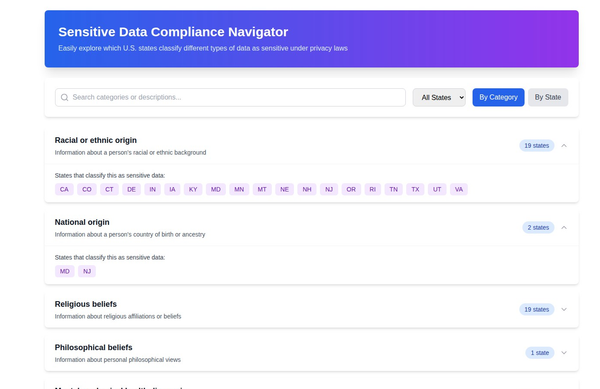DOGE Triggered 1974 Watergate-Era Privacy Law Under Scrutiny

Recent lawsuits against multiple U.S. federal agencies have reignited debates about the adequacy of the 50-year-old Privacy Act in governing modern data practices. At the center of these legal challenges is Elon Musk's government efficiency initiative, (DOGE) which allegedly received sensitive personal data through improper transfers from federal departments[1][2].
Legal Challenges to Data Transfers
Plaintiffs in five separate lawsuits filed as of February 13, 2025, allege that agencies including:
- Department of Labor
- Department of the Treasury
- Department of Education
- Office of Personnel Management
- Consumer Financial Protection Bureau
improperly shared citizens' personal information with Musk's cost-reduction program under the Trump administration. The lawsuits claim these transfers violated the Privacy Act's restrictions on federal agencies' ability to disclose personal records without consent[1][2].
Watergate-Era Privacy Law Under Scrutiny
The 1974 Privacy Act, passed in response to Nixon-era abuses of government power, faces new tests in these cases. Key provisions include:
- Requirements for agencies to maintain accurate records
- Restrictions on unauthorized disclosures
- Rights for individuals to access and amend their records
Legal experts note the lawsuits highlight structural challenges in applying pre-digital era privacy protections to modern data ecosystems. The 1974 law contains limited enforcement mechanisms and no private right of action for damages[1][2].
Government Efficiency Initiative Implications
Musk's program, part of the Office of White House Washington's government efficiency efforts, aims to reduce bureaucratic costs through technological innovation. However, critics argue the data transfers enabling this initiative risk creating massive consolidated databases without adequate privacy safeguards[1][2].
Current Status and Next Steps
As of February 13, 2025, the cases remain pending in federal courts. Legal observers anticipate these lawsuits could:
- Test the Privacy Act's applicability to interagency data sharing
- Influence congressional debates about privacy law reforms
- Impact the Biden administration's approach to legacy systems modernization
The outcomes may determine whether Watergate-era protections can adapt to 21st-century data governance challenges or if new legislative frameworks will be required[1][2].
How did the Privacy Act of 1974 come into existence
The Privacy Act of 1974 emerged as a direct response to systemic government abuses of personal information during the Nixon administration, particularly the Watergate scandal and FBI surveillance programs. Enacted on December 31, 1974, it established foundational privacy protections amid growing concerns about digital data collection and political espionage.
Historical Context and Catalysts
- Watergate and COINTELPRO Scandals:Revelations of Nixon-era illegal surveillance of political opponents (Watergate) and the FBI’s Counter Intelligence Program (COINTELPRO) targeting activists eroded public trust21112. These abuses highlighted the need for legal safeguards against government overreach.
- Technological Shifts:The 1970s saw a transition from paper-based to computerized record-keeping, raising fears about unchecked data aggregation and misuse14. Policymakers recognized the risks of “massive consolidated databases” lacking accountability4.
Legislative Foundations
- HEW Report and Fair Information Practices:A 1973 Department of Health, Education, and Welfare report introduced Fair Information Practice Principles (FIPPs), advocating transparency, individual consent, and data accuracy111. These principles became the backbone of the Privacy Act.
- Bipartisan Congressional Action:Senator Sam Ervin spearheaded efforts to draft the law, balancing House and Senate proposals. The final bill merged stricter Senate provisions (e.g., individual damages for violations) with House concessions like the “routine use” exception for interagency data sharing1114.
Key Provisions
The Act codified four core rights:
- Restrictions on unauthorized disclosure of personal records613.
- Individual access to federal records about themselves89.
- Amendment rights to correct inaccuracies613.
- Agency obligations to justify data collection and publish system notices in the Federal Register89.
Legacy and Limitations
While groundbreaking, the Act included 12 exceptions for disclosures (e.g., law enforcement, statistical uses)112 and lacked a private right of action for most damages11. Subsequent amendments, like the 1988 Computer Matching Act, addressed evolving challenges25.The Privacy Act’s passage marked a pivotal shift toward institutionalizing privacy rights, though its 50-year-old framework now struggles to address modern data ecosystems14. Its creation remains a testament to post-Watergate reforms aimed at curbing government power through transparency and individual agency.
Citations:
[1] https://news.bloomberglaw.com/privacy-and-data-security/doge-triggered-data-lawsuits-center-on-watergate-era-privacy-law
[2] https://news.bloomberglaw.com/privacy-and-data-security/doge-triggered-data-lawsuits-center-on-watergate-era-privacy-law





